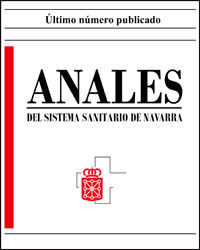Idiotype vaccines in the treatment of follicular lymphoma: current status and future perspectives
Keywords:
Linfoma folicular. Inmunoterapia. Vacuna idiotípica. Glicosilación. Splicing alternativo.Abstract
Follicular lymphoma is the second most prevalent non-Hodgkin lymphoma, representing 20% of all lymphomas. Follicular lymphoma is an indolent disease with a slow progression in which, although exhibiting a good response to treatment, relapse is very frequent and complete remission is not easy to maintain. Therefore, the disease is regarded as incurable. The search for new therapeutic strategies, together with a better understanding of the immune system, has led to the emergence of a new treatment named immunotherapy. Follicular lymphoma is a malignancy suitable for this kind of treatment given the fact that it is characterized by presenting a unique tumour-specific antigen: the idiotype of the monoclonal immunoglobulin displayed on the membrane of tumour cells. Several studies have been conducted to test immunotherapy as complementary to conventional treatment. In a previous study by our group, a clear benefit was evident is obtained after idiotypic vaccination, when an adequate immunization of the patient is obtained, in comparison to chemotherapy alone. In this sense, analysis is needed of whether idiotypic vaccination can produce not only long-lasting and complete remission, but even cure. It would be of great interest to consider an optimisation of the experimental design of clinical trials, an improvement of vaccine production, and the study of the molecular mechanisms of the tumour cell which modify the target immunoglobulin.Downloads
Downloads
Published
How to Cite
Issue
Section
License
La revista Anales del Sistema Sanitario de Navarra es publicada por el Departamento de Salud del Gobierno de Navarra (España), quien conserva los derechos patrimoniales (copyright ) sobre el artículo publicado y favorece y permite la difusión del mismo bajo licencia Creative Commons Reconocimiento-CompartirIgual 4.0 Internacional (CC BY-SA 4.0). Esta licencia permite copiar, usar, difundir, transmitir y exponer públicamente el artículo, siempre que siempre que se cite la autoría y la publicación inicial en Anales del Sistema Sanitario de Navarra, y se distinga la existencia de esta licencia de uso.








